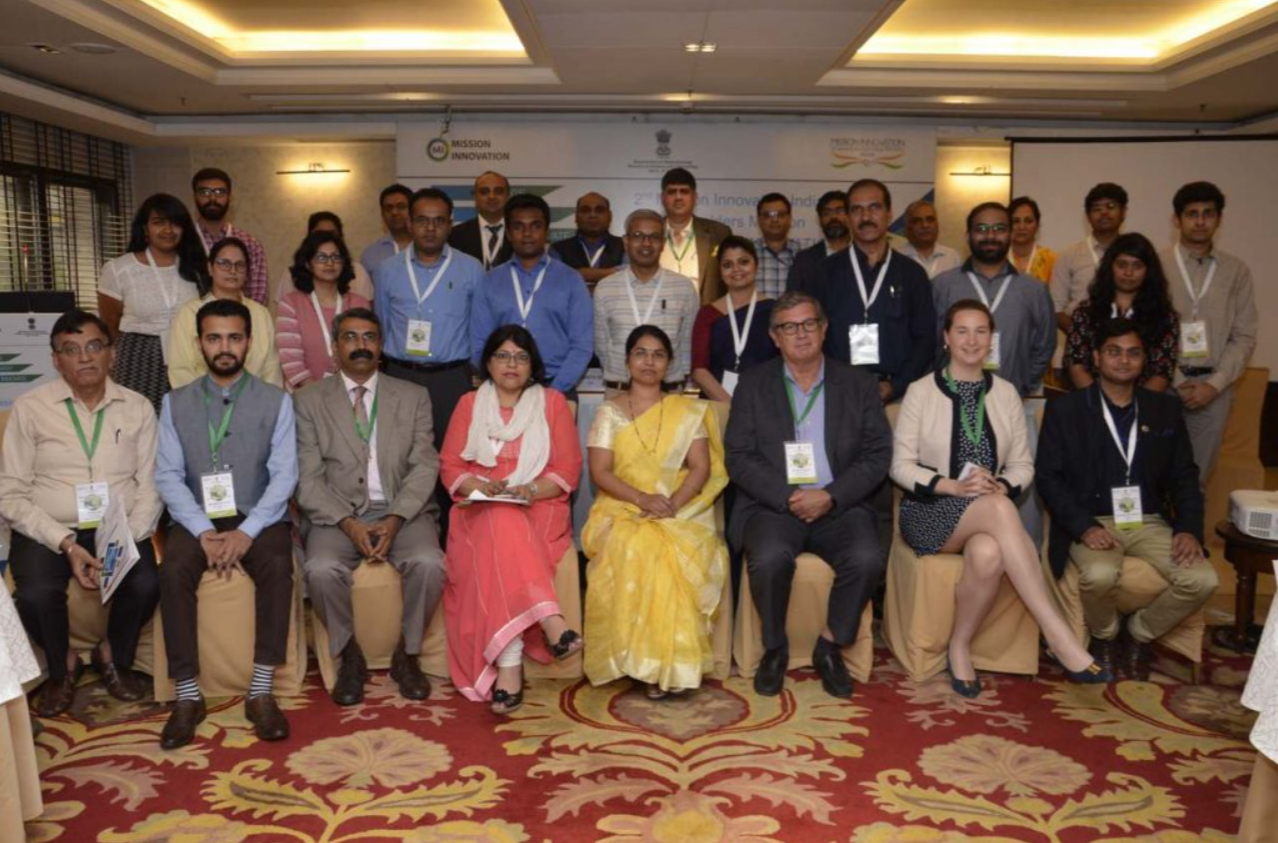Innovation Ministerial (MI-3) meeting in Malmö on 23 May 2018
The Third Mission Innovation Ministerial meeting (MI-3) was held in Malmö on 22-23 May
back to back with the 9th Clean Energy Ministerial meeting in Copenhagen under the heading
of Energy Integration and Transition: towards a competitive and innovative low-carbon
economy. The Ministerial meeting was co-hosted by the European Commission (on behalf of
the EU), Denmark, Finland, Norway, Sweden and the Nordic Council.
This gathering, half-way through the initial commitment announced by leaders at COP21 in
Paris 2015, marked an important stepping stone to assess and accelerate the progress of
Mission Innovation. At MI-3, Energy Ministers together with high-level representatives from
the business and research community celebrated the accomplishments made to date and
utilised this platform to forge new collaborations, all in a winning partnership to bring clean
energy innovation to our citizens, communities and cities.
Ministers and Heads of Delegation from the governments of Austria, Australia, Brazil,
Canada, Chile, China, Denmark, Finland, France, Germany, India, Indonesia, Italy, Japan,
Mexico, Netherlands, Norway, Republic of Korea, Saudi Arabia, Sweden, the United Arab
Emirates, the United Kingdom, the United States, and the European Commission on behalf
of the European Union (hereinafter collectively referred to as the “Members”), gathered for
the Third Ministerial Meeting of Mission Innovation (MI) in Malmö, Sweden. Delegations from
the World Economic Forum, IEA, IRENA and the Breakthrough Energy Coalition joined the
meeting as well as observers from the governments of Morocco and from SEforAll, UNIDO,
Mission 2020 and the Solar Impulse Foundation.
Austria was welcomed as the 24th member of Mission Innovation and enhanced
collaborations with the International Energy Agency (IEA) and International Renewable
Energy Agency (IRENA) were signed.
The Ministerial kicked-off with an informal breakfast, gathering ministers and select business
leaders for an exclusive and informal scene-setter focusing on clean energy investments
opportunities. The session explored ways to couple public and private sources of funding for
maximum effect to significantly shorten time to market for new technologies and solutions. A
key message from the discussion was that we are underestimating the pace of change.
Change is happening everywhere, from new technologies and investment instruments to
change in insurance companies. However, while start-ups are relatively plentiful, there is
shortage of great startups rather a shortage of patient capital. Creative public-private
partnerships can create new opportunities, such as through the use of public procurement to
aid innovation.
During the closed-door Ministerial meeting co-chaired by Sweden’s Minister of Energy
Baylan and the European Union’s Commissioner for Research, Science and Innovation,
Carlos Moedas, Ministers demonstrated progress across MI work streams, launched new
collaborations and initiatives. They had meaningful exchanges on how MI can further
accelerate the pace of clean energy innovation with the focus on assessing progress against the Action Plan Goals.
Progress across the Innovation Challenges was demonstrated with
many new programmes and activities announced over the past year and at the Ministerial.
Ministers heard from leading innovators, including: Professor Curtis Berlinguette on the
acceleration of clean energy materials discovery using robotics, automation and AI, Bubacar
Diallo demonstrating how Benoo Energies is developing new funding solutions to spread
renewable energy projects in developing countries, and Bertrand Piccard from the World
Alliance for Efficient Solutions which is selecting 1000 clean and profitable solutions to
protect the environment.
The co-chairs led an open discussion on MI’s progress to date and the next steps the MI
community and individual members can take to support the delivery of the MI goals.
Ministers endorsed a number of activities to deliver MI’s Action Plan over the next two and a
half years (‘Delivering the Action Plan’). Members expressed the importance of continuing to
track progress to follow the development of solutions and to better understand the challenges
for innovators. Several members presented exciting programs and projects that are
underway and linked to the implementation of the MI Action plan. Several delegations
highlighted how crucial it is to set the right regulatory frameworks for spurring innovation and
welcomed a continued dialogue. Delegations also stated the value of working together.
International collaboration to promote innovation is part of the solution to reduce the
greenhouse gas emissions for the production, transportation and use of energy. Members
also emphasized the importance of showcasing results and success stories, and enhanced
collaboration with the private sector.
In the afternoon, public-private discussions were organised in cooperation with the World
Economic Forum around five key technology areas: smart grids; batteries; heating & cooling;
hydrogen; and carbon capture, storage & use). Ministers, high-level representatives from
industry and Mayors focused on innovation challenges relevant to the needs of cities and
specific outcomes and discussed concrete steps to deliver impact.
The co-chairs concluded by stating that MI is delivering an increase in public clean energy
investment and is on track to meet its commitment. Still more work is needed and MI
members will continue to engage with each other and the private sector to accelerate the
pace of innovation. The third Mission Innovation ministerial was an opportunity to celebrate
many of the innovations coming out from national and international programs and we should
continue to showcase the great solutions.
Kim Rudd, Parliamentary Secretary to Canada’s Minister of Natural Resources, closed by
welcoming MI members to Vancouver, Canada for the Fourth Mission Innovation Ministerial
and encouraged members to continue to work with partner countries, international
organizations and the private sector in areas where clean energy innovation can drive
economic growth and help build a low carbon future.







